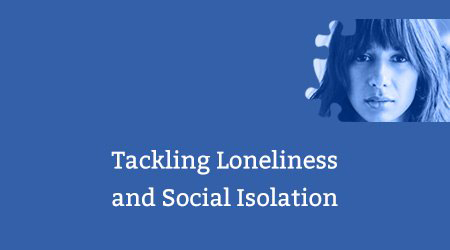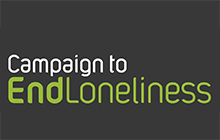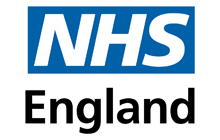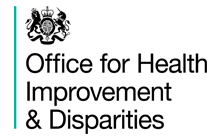About the Tackling Loneliness and Social Isolation programme
There is evidence that having a lack of social connections significantly increases the risk of premature mortality. The risk to health that chronic loneliness can bring is greater than those associated with many factors that currently receive substantial public health attention and resources.
The Learning and Social Isolation (LSI) course is focussed on highlighting the impact of chronic loneliness as a serious health concern and how we can all help to tackle loneliness with the interactions we have with patients and the public. It supports the call to action from the Jo Cox Commission to ‘equip people with information about the potential triggers for loneliness and ensure they know where to go for support’ and consists of e-learning, two animations, two podcasts and a resource guide.
Who is it aimed at?
It is relevant to all health and care staff and the wider public health workforces.
How learners will benefit from doing this course
The learner will:
- understand the importance of loneliness and social isolation (LSI) as a risk factor for negative health outcomes.
- be able to recognise people within their practice at risk of LSI through an understanding of the risk factors and key risk groups.
- be able to have conversations with people, in order to identify if an individual is likely to be at risk of, or experiencing, LSI.
- have knowledge of the available range of evidence-based interventions for loneliness, and know how to refer or signpost those identified at risk of LSI.
- be able to have ongoing interactions with clients with LSI to ensure ongoing care where it is relevant to their role.
-
David is a single gay man in his 60s. This is his story.
David is a single gay man in his 60s. This is his story.
-
Aisha moved to the UK 4 years ago and has recently had a baby. This is her story.
Aisha moved to the UK 4 years ago and has recently had a baby. This is her story.
More information
This guide provides categorised information and links to policies, training resources, articles and blogs, and useful contact information.
In this session you will learn how you can recognise risk factors, risk groups, and apply simple interventions that can make a positive impact. Access through the link at the bottom of the page.
-
Podcast – Supporting You
Podcast – Supporting You
You will hear how LSI affects different people and how to get support from your GP.
-
Podcast – Supporting Others
Podcast – Supporting Others
You will hear how, as healthcare professionals, we can support others who are experiencing LSI.
Meet the team

Dr Kalpa Kharicha
Head of Research, Policy and Practice, Campaign to End Loneliness
Robin Hewings
Programme Director, Campaign to End Loneliness
Chris Sharp
Workforce Development Lead, Public Health England Y&H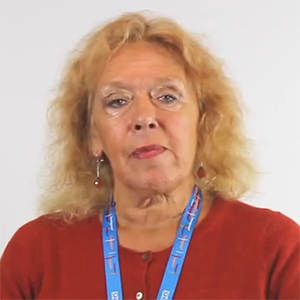
Val Barker
Head of School of Public Health, Health Education England Y&H
Haylo Theatre
Hayley Lamb and Louise Harris of Haylo Theatre
Antonio De Gregorio
Project Manager, Population Health and Prevention
Margit Veveris
Senior Project Manager – Long Term Conditions and Prevention Programme
Heidi Breed
Programme Manager - Workforce Training and Education, NHS England
Holly Potton
Project Manager – Long Term Conditions and Prevention Programme, on secondment from the Civil Service Fast Streamer Programme
Libby Potter
Head of Portfolio for national teams, Workforce, Training and Education (WT&E) at NHSE covering Long term Conditions and prevention, Maternity, Neonatal, Children and Young People and Cancer workforce reform ACCEND
Dr Helen MacIntyre
Head of Evidence, Campaign to End Loneliness
Mhairi Grant
Engagement and Comms Lead, Campaign to End Loneliness
Rashmi Chavda
Graphic Designer, Technology Enhanced Learning, NHS England
Scott Tyrrell
Learning Design Animator, Technology Enhanced Learning, NHS England
Hannah Denness
Stakeholder Officer, Technology Enhanced Learning, NHS England
How to Access
In order to access the Tackling Loneliness and Social Isolation programme, you will need an elfh account. If you do not have one, then you can register by selecting the Register button below.
To view the Tackling Loneliness and Social Isolation programme, select the View button below. If you already have an account with elfh, you will also be able to login and enrol on the programme from the View button.
Gain CPD points and continue your personalised care learning experience.
This programme forms part of the Personalised Care Institute’s library of personalised care training for all healthcare professions. If you would like to obtain a certificate and CPD points for your ongoing CPD records, and learn a lot more about personalised care, then please visit the Personalised Care Institute website to register and access.
Not an NHS organisation?
If you are not an NHS health or care organisation and therefore do not qualify for free access elfh Hub, you may be able to access the service by creating an OpenAthens account.
To check whether or not you qualify for free access via OpenAthens, you can view the eligibility criteria and register on the ‘OpenAthens’ portal.
Registering large numbers of users
If you are a HR, IT or Practice Manager and would like to register and enrol large numbers of staff within your organisation for access onto the Tackling Loneliness and Social Isolation programme, please contact elfh directly.
Organisations wishing to use their own LMS
For HR departments wanting to know more about gaining access to courses using an existing Learning Management System please contact elfh directly to express interest.
More information
Please select the following link for more information on how to use the elfh Hub.



